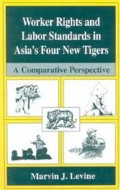Abstract
Under the policy of economic reform there has been a graduate devolution of production and marketing decisions to individual enterprises. The Law on State-Owned Industrial Enterprises (“Enterprise Law”) of 1988 states that the manager, rather than the factory Communist Party Committee, is responsible for day-to-day management of the enterprise. The law speaks in general terms about the “managerial responsibility system,” which gives managers ultimate decision-making power over production and management. In practice many factory managers and party secretaries continue to be one and the same person. Other factory managers find it prudent to operate a kind of tripartite system, whereby company policies are thrashed out between factory management, the factory party committee, and worker congress or union representatives. The wisdom of this cooperation is reinforced by the fact that, according to the Enterprise Law, factory managers are subject to removal by the worker congresses for incompetence or malfeasance. Recently, the Chinese press has reported several such removals. Moreover, close working relations are enhanced since, in almost all cases, managers, union officials, and party officials are all members of the party committee.
Access this chapter
Tax calculation will be finalised at checkout
Purchases are for personal use only
Preview
Unable to display preview. Download preview PDF.
References
Trade union federation seeks better protection for workers’ rights. (1995). Reuter Textline, 3, 1.
China to spread collective contract system. (1995). Xinhua News Agency, 7, 4.
Nickerson, D. (1995). Sweeping labor law benefits yet to reach workers. South China Morning Post, 1, 12.
Naughton, B. (1985). False starts and second wind: Financial reforms in China’s industrial system. In E. Perry & C. Wong (Eds.) The Political economy of reform in post-Mao China (p. 223). New York: Oxford University Press.
White, G. (1987). The politics of economic reform in Chinese industry. China Quarterly, 9, 111, 375–376.
Provision 860712-Labor Contract Provisions.
Zhu, Y. (1995). Major changes under way in China’s industrial relations. International Labour Review, 134, 1, 41.
China’s joblessness less than 2.8 percent. (1995). Xinhua News Agency, 7, 29.
Slow march to unionization in China. (1995). Business China, 4, 3.
Yuan, Z. (1994). Workers win out in strike at disk factory. South China Morning Post, 5, 30.
Unwelcome addenda in China. (1995). Business China, 4, 3.
Ibid.
Chenguang, M. (1994). New law approved to protect employees. China Daily, 7, 16.
China labour minister says strikes inevitable. (1994). Agence France Presse, 7, 15.
Rising discontent among workers, peasants and urban residents. (1994). Tangtai (Chinese) no. 38, 5, 15, 20–22.
Fong, C.W. (1995). Backing for strike laws. South China Morning Post, 5, 1.
Po-Ling, C. (1994). New law curbs right to strike. (1994). South China Morning Post, 11, 26, 9.
Ibid.
China to launch campaign to publicize labor law. (1995). Xinhua News Agency, 6, 10.
Mediation helps in labor disputes. (1991). Xinhua News Agency, 3, 25.
Labour rights could be next U.S.-China dispute. (1994). Reuter Textline, 3, 27.
Rights and permissions
Copyright information
© 1997 Plenum Press, New York
About this chapter
Cite this chapter
(1997). The Law, Contracts, Strikes, and Dispute Settlement. In: Worker Rights and Labor Standards in Asia’s Four New Tigers. Springer, Boston, MA. https://doi.org/10.1007/978-0-585-34649-6_5
Download citation
DOI: https://doi.org/10.1007/978-0-585-34649-6_5
Publisher Name: Springer, Boston, MA
Print ISBN: 978-0-306-45477-6
Online ISBN: 978-0-585-34649-6
eBook Packages: Springer Book Archive

